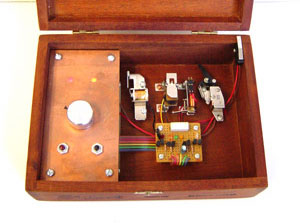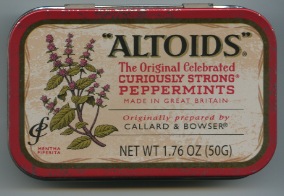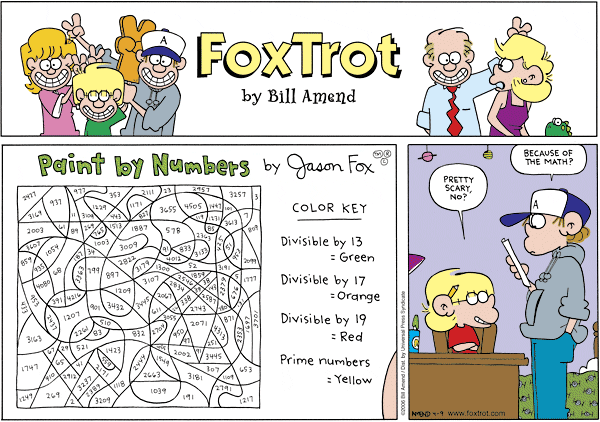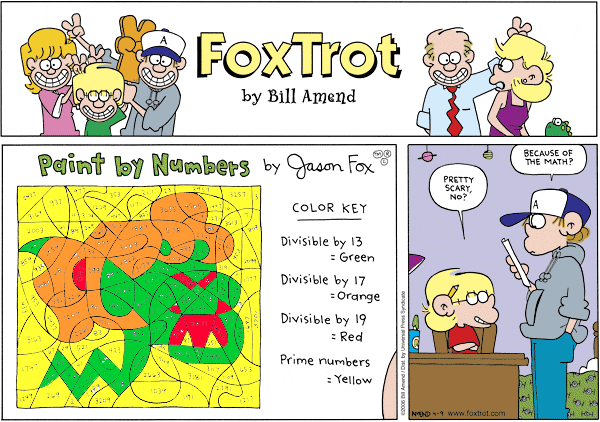Living in California as I do, I have a lot of friends who have ideas about the physical world that on their face seem ludicrous to a scientifically-minded materialist like myself. For example, people I love and respect think that some people have the ability to heal by adjusting a patient’s “energies” without touching him, others think that spells and witchcraft have power beyond the psychological, and even more think there’s some “guy” up in heaven that controls what happens here on Earth and that 2000 years ago His son rose from the dead. Since I respect these friends a great deal I’ve been looking for common ground, and have started playing a game with myself where I try to translate these beliefs into a form that a philosophically-minded but skeptical materialist like myself can accept.
I mean translate literally — I look for meanings of the words my believer friends use that make the belief plausible in my own world-view while compromising their actual beliefs as little as possible. There are some limits to the game — no amount of translation is going to make the claim that one can change the weather just with one’s mind any more palatable to me. But there is a surprising amount of room to maneuver. For example, I’ve heard some describe the energy manipulated by reiki practitioners as “electricity,” but when pressed it’s clear that’s just a metaphor for something else — they don’t actually mean that this energy can be measured with a voltmeter any more than a physicist talking about an electrical “current” thinks you could steer a boat down a river of the stuff. The goal of my private game then is to answer the question, “a metaphor for what?”
The fun part of this game is that when I’m being honest with myself I rapidly wind up at logical impasses in my own philosophy as well. My latest conundrum has to do with belief in some sort of soul, a “thing” that is a fundamental part of and unique to every living being (or at least every person), and that persists after that person has died. So the game is to come up with something that is (a) something fundamental to the identity of an individual person and yet (b) still exists after the body has turned to dust. As I cast about for things in my own world-view that might fit the bill (including things like “the patterns of memories left in surviving friends and family” and “the combination of genes and upbringing one leaves in one’s own children”) I started to recognize that the idea of a soul is an answer to a basic philosophical question left unanswered by materialism, namely “when we see an object at two points in time, what features are necessary such that we recognize the two viewings as the being of the same object?” I’ve always heard this called the Granddad’s Axe problem:
I’ve got my Granddad’s old axe. I’ve replaced the handle twice, and the head three times, but it’s still my Granddad’s old axe…
We can certainly accept that Granddad’s axe is still the same axe even if we paint it or sharpen it, and might even accept it’s the “same” axe after we’ve replaced both the head and the handle if we use it in the same way, it evokes the same memories of Granddad that it did before, etc. What about people? It’s been said that every molecule in a person’s body is replaced after a decade or two, and certainly I’m very different in both appearance and thinking than I was when I was 12. Am I still the same person I was then, even with all those changes? If so, why do we connect the atoms that made up that child then with the person sitting here typing this now? And if not, is there some 12-year-old boy living today who, based on similarity to that boy of 24 years ago, is more deserving of the title?
Materialism (or my understanding of it at least) doesn’t offer any answers to these questions, nor does it feel the need to do so. The philosophy simply suggests that there are patterns that exist in the world at different points in time, that they follow certain rules, and that any vocabulary that accurately describes those patterns is equally valid (though potentially more or less practical and comprehensible). Unfortunately, just calling such a pattern “soul” doesn’t get us any further — that just amounts to saying “yes, you are the same person as you were when you were 12, and we’ll call the thing that binds those two defined entities together your soul.”





